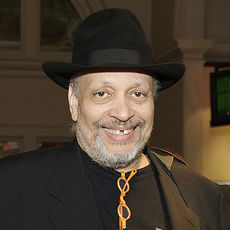While Walter Mosley is best known for his Easy Rawlins mystery series, he has written some excellent stand-alone fiction as well. I just finished The Last Days of Ptolemy Grey on audio and loved it. Ptolemy Grey is 91, and slipping into dementia in his cluttered apartment. Robyn, not exactly a relative, but not exactly not, cares for Ptolemy after the death of his great-nephew Reggie, his lifeline to the outside world. In the course of bringing Ptolemy back to the land of the living, Robyn unknowingly takes him to a doctor who can promise him renewed mental vitality in return for a shorter lifespan. Ptolemy agrees, and gets his affairs in order. Throughout the book, told entirely from Ptolemy's point of view, he flashes back though his life, first in the South, then in the army, and then in Los Angeles and two marriages. It's an elegiac book, the end never really in doubt, just a matter of how one gets there. On the one hand, things can seem as intimate as Ptolemy's apartment, on the other hand, one gets a feeling of the vast expanse of America in time and space. There's also a feeling of hope as Ptolemy makes a new friend or two, and shares his life story and wisdom with Robyn. The message seems to be: death is fine, it happens to us all, just be awake for it.The Tempest Tales asks the question, is sin the same for Americans of African descent who are poor as for those of European extraction who are not? Tempest Landry dies and is denied entry to Heaven for what he considers minor infractions. St. Peter sends Landry back to Harlem with an angel named Joshua to convince him of the verdict. Landry may get a second chance if he can convince Joshua, but Satan has taken notice of the shenanigans and wants Landry's soul badly. There are plenty of witty and philosophical discussions of good and evil, and even Joshua begins to see the pleasures of living not entirely by the rules.
Fortunate Son focuses on two characters: Eric, a good-looking Caucasian, and Tommy, a disabled African American. They meet as boys during one of Tommy's many hospitalizations and become as close as brothers. As they grow up, Eric seems to have all the luck, but is ever doubtful of his surroundings and those around him. Tommy is just grateful for whatever small mercies life gives him. Eventually they are forced apart and the book traces their parallel lives until they are reunited to save each other. This is another one of Mosley's philosophical treatises, this story pondering who is actually fortunate. Perhaps, it suggests, happiness is a choice.




Add a comment to: Walter Mosley, Philosopher